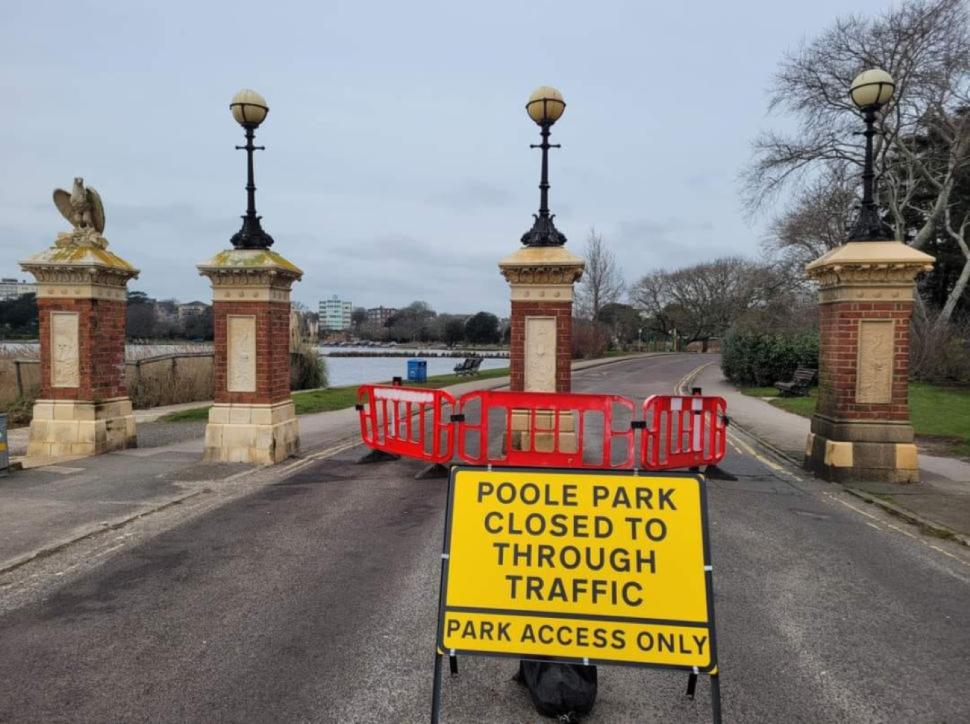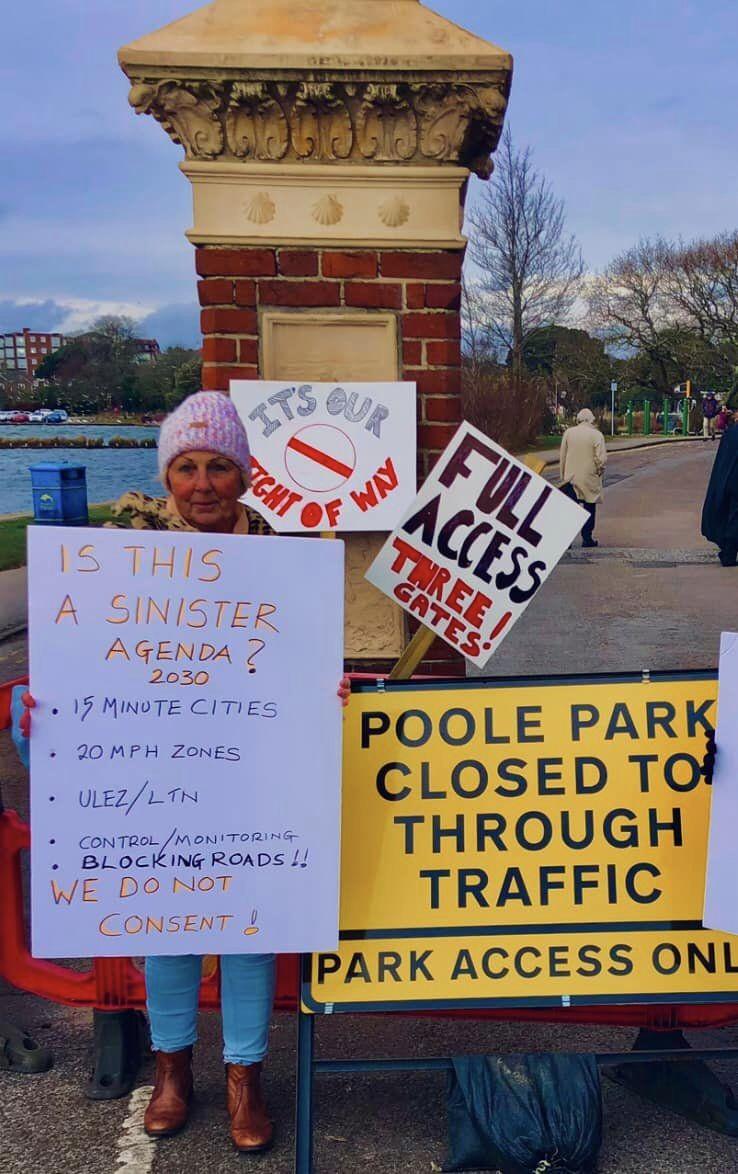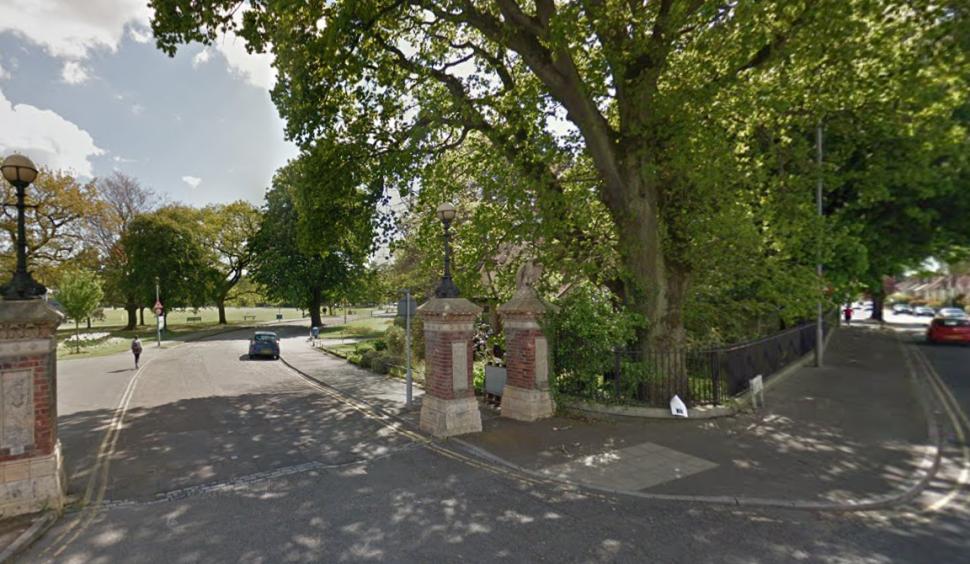- News
- Reviews
- Bikes
- Components
- Bar tape & grips
- Bottom brackets
- Brake & gear cables
- Brake & STI levers
- Brake pads & spares
- Brakes
- Cassettes & freewheels
- Chains
- Chainsets & chainrings
- Derailleurs - front
- Derailleurs - rear
- Forks
- Gear levers & shifters
- Groupsets
- Handlebars & extensions
- Headsets
- Hubs
- Inner tubes
- Pedals
- Quick releases & skewers
- Saddles
- Seatposts
- Stems
- Wheels
- Tyres
- Tubeless valves
- Accessories
- Accessories - misc
- Computer mounts
- Bags
- Bar ends
- Bike bags & cases
- Bottle cages
- Bottles
- Cameras
- Car racks
- Child seats
- Computers
- Glasses
- GPS units
- Helmets
- Lights - front
- Lights - rear
- Lights - sets
- Locks
- Mirrors
- Mudguards
- Racks
- Pumps & CO2 inflators
- Puncture kits
- Reflectives
- Smart watches
- Stands and racks
- Trailers
- Clothing
- Health, fitness and nutrition
- Tools and workshop
- Miscellaneous
- Buyers Guides
- Features
- Forum
- Recommends
- Podcast
news
 Poole Park (Facebook/Leave Poole Park Alone)
Poole Park (Facebook/Leave Poole Park Alone)Park rat-run to remain closed to drivers to promote cycling, following trial made controversial by "vocal minority who drive straight through the park"
A council has admitted the response was "much bigger than expected" after it closed a rat-run through a heritage listed park to prevent drivers using the route as a cut-through, in a bid to promote cycling and walking and tackle air and noise pollution, but has committed to keeping the road closure in place now the trial period has ended and more than 5,000 consultation responses are being considered.
The local newspaper the Daily Echo reports the sheer scale of public opinion on the matter, the responses to BCP Council (Bournemouth, Christchurch and Poole) more than double what was received for a survey on the 2024-25 budget that asked for views on service cutbacks.
And while the council has not shut the route through Poole Park, a 110-acre green space in the Dorset town, permanently — a period of analysis to "understand every piece of feedback and insight on either side of the debate" will follow, potentially with an "open public meeting" — the road, used as a rat-run near Sandbanks, one of the wealthiest neighbourhoods in the country, to remain closed to drivers in the meantime now the four-week trial period has ended.
The trial prompted vocal opposition from a group of residents that a local active travel group has branded a "vocal minority" consisting of "car drivers who drive straight through the park". Protests were held at the road closure, people opposing the pro-cycling and walking measure seen holding signs repeating much of the rhetoric that has been heard elsewhere in the country in recent times during backlash to low-traffic neighbourhood schemes, 20mph speed limits and ULEZ.
However, councillor Andy Hadley, the council's portfolio holder for climate response, environment and energy, told the community during the trial that "we don't have an anti-car agenda" just that there is "a challenge on our roads about the dominance of the car... [they're] getting bigger and there's more of them".
"We are now looking at analysing all these responses and understanding every piece of feedback and insight on either side of the debate that park users took the time to share with us," he said, commenting on the next steps in the process.
"It's clear that with such a high response rate, the decision-making process will take longer than we originally planned, and it now seems more appropriate for this decision to be debated and considered in an open public meeting.
"That is why the item is on the forward plan to be discussed at the cabinet meeting in May, but we are looking at how we can shorten the timeline and discuss it earlier than that. Whilst we are reviewing the timeline, the entrance and exit to the park will remain closed as originally advised."
"Benefit all park users"
The closure was welcomed by active travel groups, a spokesperson for BH Active Travel saying the park being a space closed to through-traffic will "benefit all park users".
The group also said the opposition to the proposals is a "vocal minority" and the closure is "only prejudiced to one specific group of people — car drivers who drive straight through the park".
During the trial BH Active Travel's Chair, Lucie Allen, argued the "parks should be safe, open green spaces for people to use, whether that be for recreation, leisure, or quiet contemplation".
"It's always amazed me that commuters are allowed to cut through the park, particularly during the end of the school day and rush hour, effectively using the park as a rat-run to avoid congestion on the road network," she added.
Opponents to the closure, who want to see the park remain as a through-route for drivers, have accused the council of being "anti-car".
Lead campaigner Bob Lister pointed to the 1,400 followers his campaign has on Facebook as evidence of the support for keeping the through-route open.
"And if you imagine they are households of two to three people, we could possibly have won the vote," he suggested.
"But it's sad they are not going to make a decision soon. We don't know how long it will take to read through the results. It was also a very biased consultation, with a lot of closed questions. I don't understand why they don't keep it open now and then decide in May at their cabinet meeting."
One resident angered by the decision said: "Previously we have easily and safely used the park road to get to Sandbanks Road and Shore Road. Now we have to squeeze into the queue of traffic waiting to get to the Civic Centre and then have to join a long queue taking it in turns to go through the railway bridge along Sandbanks Road.
"So, more irritation, more delay, potentially more accidents, and more petrol being used up as we wait in stationary cars to navigate these blockages. So much for cutting the carbon footprint. In the meantime the park is nearly empty and a perfectly good road to avoid these pressure points has been blocked off.
> Richmond Park reopens to rat-running drivers after almost five months of car-free roads
"I can't imagine the chaos which will occur in the summer when festivals and other events which go on in the park try to contend with a system that only allows one exit point for all vehicles."
Cabinet members will consider "a report on the improvement of the environment in Poole Park through a trial closure" at a meeting on May 22.
Dan is the road.cc news editor and joined in 2020 having previously written about nearly every other sport under the sun for the Express, and the weird and wonderful world of non-league football for The Non-League Paper. Dan has been at road.cc for four years and mainly writes news and tech articles as well as the occasional feature. He has hopefully kept you entertained on the live blog too.
Never fast enough to take things on the bike too seriously, when he's not working you'll find him exploring the south of England by two wheels at a leisurely weekend pace, or enjoying his favourite Scottish roads when visiting family. Sometimes he'll even load up the bags and ride up the whole way, he's a bit strange like that.
Latest Comments
- Aluminium can 2 hours 14 min ago
Its not a booby trap as it says clearly right on the side the outcome of cutting it. The same as aerosol paint cans have warnings not to...
- eburtthebike 2 hours 34 min ago
A comedian with a purpose can achieve more than the politicians e.g. Zelesky.
- Hirsute 4 hours 10 min ago
Sounds a bit specific though given 90% are bought on some sort of finance.
- Rekrab 4 hours 28 min ago
MORE LANES, MORE LANES!!!!
- Simon E 4 hours 35 min ago
The numbers don't tell anything like the whole story....
- Simon E 5 hours 6 min ago
Just squirt some thick grease all over his side windows and door panels. If you're feeling really uncharitable you could throw some sand at the...
- David9694 5 hours 46 min ago
check under 'W'for "What cars do to people"
- Global Nomad 6 hours 28 min ago
good to see you're testing the farsports wheels - hope to see road.cc continue to expand the range of brands it considers. These or the shallower...
- chrisotherwise 7 hours 1 min ago
Sadly very normal. And the sand contains loads of evil little shards of flint.


Add new comment
15 comments
I'd say use the park route for public transport only but the kind of people using the route are probably Range Rover drivers that never set foot outside unless it's walking to the gym from the car.
The gate goes directly to an ancient railway bridge with a six foot width limit, including mirrors.
Most drivers are using the entrance illegally.
Cars don't belong in parks.
But what about car parks though? Says it in the name?
Might as well talk about hot dogs needing to be on leashes on the public highway, since they are dogs an' all
I'm sure you know the history of why we call it "parking" a car, but just in case... when motor cars started becoming popular, they were good for getting into town but there was nowhere to store them once you got there. So the owners got into the habit of just leaving them in a bit of open public space: parks. The car, being in a park, was now "parked."
Sounds a bit anti-social, right? It's gone downhill from there.
That sounded plausible and interesting, so I tried to find out more, but instead discovered that using "park" as a verb dates back a lot longer
https://www.oed.com/dictionary/park_v
Well dang, I thought I read that in a real book.
"I must be allowed to drive wherever, whenever I like, it's a god-given right and you can't take it away."
The sheer insufferable entitlement is literally incredible. Don't these people have any self-awareness? Well, they could all be PopCons I suppose.
"Now we have to squeeze into the queue of traffic waiting to get to the Civic Centre and then have to join a long queue taking it in turns to go through the railway bridge along Sandbanks Road"
As apposed to squeezing through the keyhole bridge and taking turns through the single file bridge?
"And if you imagine they are households of two to three people, we could possibly have won the vote," he suggested.
Another one who doesn't understand what a consultation is.
I may be missing something, but if you are sitting in your car in stationary traffic then aren't you recommended to switch the engine off? Then you wouldn't be using more petrol.
This whole Freemen of the Land "We do not consent" guff (see photo) just really winds me up Laws don't work like that - you can't in general ignore a law just because you don't agree with it, or because the Govt didn't personally write to Mrs I. Diot of 25 The High Street to get her permission…
Laws don't work like that - you can't in general ignore a law just because you don't agree with it, or because the Govt didn't personally write to Mrs I. Diot of 25 The High Street to get her permission…
Years of car centric culture has led them to believe that driving a car where and when they like is a god given right. Sadly, we have Politicians using their stupidty to gain votes from them, by playing up to their fears.
Along with sensationalism seeking journalists claiming the issue is in someway related to Sandbanks ("one of the wealthiest areas of the country"), which is both wrong (it's 2 miles by road, with other, bigger, more populated neighbourhoods in between), and irrelevant.